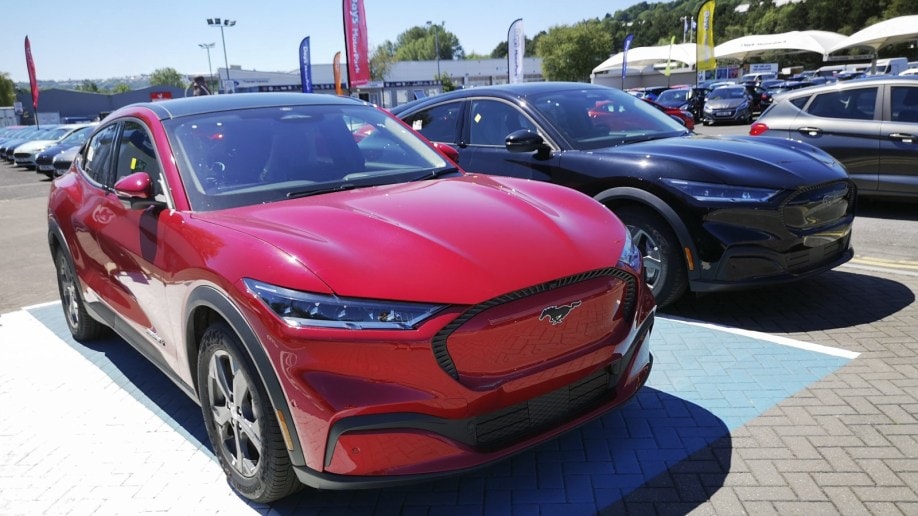
The automotive industry works that way thanks to a century of unplanned business evolution and a patchwork of state and federal laws. But it has changed more in the past decade than in the previous five. And more change is coming.
The head of one of America’s oldest and largest automakers thinks the future is fixed prices and online sales. Dealerships, he says, could deliver and service cars people custom order rather than selling them from a stockpile of vehicles the dealership guessed people might come in looking for.
“We’ve Got To Go To 100% Online”
Ford CEO Jim Farley told a gathering of business leaders at the Bernstein Annual Strategic Decisions Conference in New York that the company needs to move to a new business model.
“We’ve got to go to non-negotiated price. We’ve got to go to 100% online,” he said.
It’s not the first time Farley has outlined the same vision. He expanded on it this week, however, saying the model would involve “no inventory” at dealerships. Instead, Farley said, “it goes directly to the customer. And 100% remote pickup and delivery.”
That approach would be a radical change for car dealers. But, Farley continued, “I think our dealers can do it. The standards are going to be brutal. They’re going to be very different than they are today.”
Tesla Pioneered This in America
The sales model sounds like a radical shift, but it’s already how cars are sold in Europe.
In the U.S., Tesla gets credit for making it possible.
Many Americans know Tesla for its innovations in electric cars. But the changes it made to car sales are at least as significant as anything it ever did with batteries.
When Tesla launched nearly two decades ago, automakers weren’t allowed to sell cars directly to consumers in most states. Laws required them to go through third-party dealers. Tesla began a massive lobbying effort at the state level, and many state governments changed their laws to allow direct-to-consumer sales.
In many states, Tesla directly operates its own stores.
Some states still block that sales method. In those states, Tesla often operates “galleries” where shoppers can view and even test drive cars, but Tesla staff send shoppers home to order their cars online.
Change Comes Slowly
Ford can’t move to the online-only sales model overnight. It has partnerships with thousands of dealerships nationwide, which take on much of the risk for Ford by buying Ford vehicles, advertising them, and absorbing some of the loss of an unpopular car.
It isn’t clear how Ford would incentivize dealers to get out of the sales business and become delivery-and-service locations.
But Tesla’s success could push the industry that way whether dealers like it or not. Already, Ford has largely sold its Bronco SUV, F-150 Lightning electric truck, and Maverick small pickup primarily through online orders. All three vehicles have been runaway sales successes, though not necessarily due to the order system.
And dealers have faced bad publicity and public criticism from Ford for attaching hefty markups to those vehicles.
It’s Not Just Ford
Ford isn’t alone in exploring the order model. Acura is selling its reborn Integra only through a reservation system. Volvo sells its new electric cars, like the new C40 Recharge, directly through online sales.
Other automakers have criticized their own dealership networks over markups as well. This year alone, GM, Hyundai, Nissan, and Subaru have all warned their own dealers against some pricing practices.
Surveys show that car shoppers are happier with their buying experience when they spend as little time as possible in dealerships.
And other automakers have said they intend to carry less inventory at dealerships to avoid discounting cars to sell them.
So, while we can’t guarantee you’ll custom-order your next car for a fixed price and have it delivered to your home, it’s big news that the CEO of one of the world’s largest automakers thinks “we’ve got to get to” that system.







